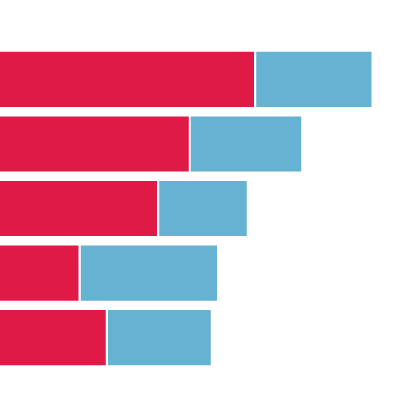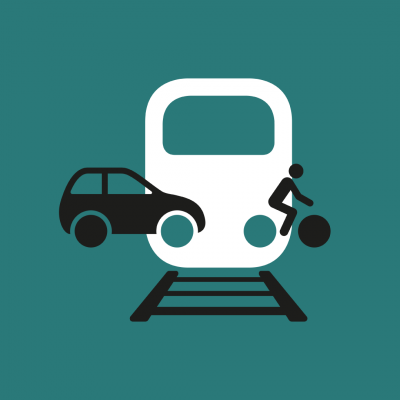Inequalities in who relies on a private vehicle to travel to work
30 October 2023

- In England, around 57% of people who currently commute to work using a private vehicle believe that it would be difficult to find an alternative mode of transport.
Car use can affect our health in a number of ways. The high cost of car maintenance can place pressure on resources for low-income households, limiting what they can spend on goods or activities that support good health, and creating financial hardship. Not having access to a car can limit someone’s job opportunities and income potential. Car use also contributes to higher levels of air and noise pollution, as well as physical inactivity and sedentary behaviour, all of which are linked to poorer health.
This chart shows the share of people who commuted using private transport (predominantly car, but also van, motorcycle or scooter) in England in 2020, and who would find it difficult to commute by an alternative form of transport if they were unable to make the journey by private vehicle. Estimates are broken down by age, region and occupation.
In England, 57% of commuters travelling to work by private transport (usually a car) would find it difficult to travel to work without their vehicle. This share varies by population groups.
- Drivers aged 50–59 years (57%) are more likely to depend on their private vehicle than drivers aged 17–20 years (49%).
- Around 77% of drivers in Northern England’s non-metropolitan areas say they would struggle to reach their jobs without a private mode of transport, compared with just 36% of drivers in London.
- Drivers in non-manual jobs (‘skilled’) are least likely to say that they depend on their private vehicle (52%), while drivers in manual or ‘unskilled’ occupations are most likely (67%).
The extent to which people depend on their private vehicle is partly determined by the availability and quality of public transport services, as well as journey times, the cost of travel and availability of information on public transport routes.
For people who don’t have cars, car dependence can limit job opportunities and have other adverse impacts on health. A lack of quality alternatives to private transport can be addressed by greater investment in public and active transport (cycling or walking).
- A private vehicle is defined as a car, van, motorcycle, scooter or moped.
Source: Health Foundation analysis of Department for Transport, National Travel Survey (NTS), 2020.







